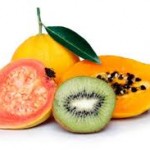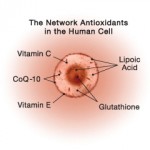Cardiovascular illness isn’t caused by one cause and so it’s not accurate to say that one answer will work for everyone. And in fact, some circumstances could be completely out of your control. But, it’s still a good concept to made whatever improvements you can to help your health . For one thing – we know that oxyradical damage to the cells can build up and left untreated lead to damaging the heart and cardiovascular system. Science has demonstrated that antioxidants can destroy free radicals and stop that damage. So, will taking antioxidant supplements combat heart disease?
Up until now, no one is certain . Antioxidant vitamin E supplements , for one , haven’t been shown to reduce the likelihood of stroke, heart disease, or other cardiovascular problems . While the supplement may contain antioxidants, they don’t seem to help.
Antioxidants are also available from beta carotene supplements , but doctors agree excessive amounts of beta carotene is not a good thing . It can instead cause an increase in cardiovascular and other heart issues and diseases So mega dosing beta carotene in order to inject anti oxidants into your body to combat heart and/or cardiovascular issues is -you’ll agree- a lousy idea.
The best route appears to stem from consuming foods rich in antioxidants.
Fruits, whole grain foods and vegetables that contain antioxidants have been proven to decrease the likelihood of heart disease. To help lower your risk of cardiovascular diseases, you might need to modify your diet to include some of the most richly concentrated antioxidant foods like – dried beans – red, kidney and pinto ; wild blueberries; other berries like cultivated blueberries, cranberries and raspberries . There are more , but just how hard is it to add dried beans and berries to your diet?
Natural antioxidants are the best start and another natural antioxidant is L-glutathione which is produced in the body. As the Master Antioxidant, glutathione should be considered as another tool in your heart disease protection arsenal . Too bad that it’s not all that well absorbed in the form of an oral antioxidant supplement . A better idea is to supplement with a glutathione precursor like Cellgevity from Max International.
And if you really want to help your heart by boosting your level of antioxidants – stop smoking. (Hardly much of a news flash, is it?) Smoking has been conclusively connected to the introduction of free radicals, so you’ll need to take even more antioxidants just to make up for the smoking. While you’re at it – watch your blood pressure, eat foods high in fiber and other nutrients, and exercise regularly .
.

